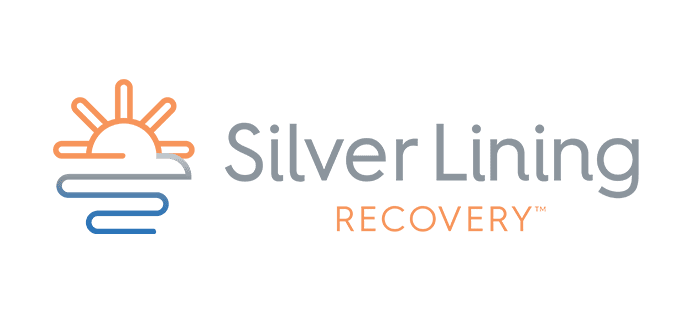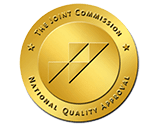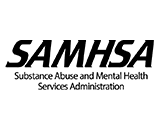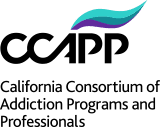Once you have completed a rehab program, it’s time to decide on a support group to continue your recovery journey and stay on track. There are many post-rehab programs to choose from, but what is most important in this entire process is figuring out which one is right for you. You may need to go to different support groups and attend a few meetings at each to decide what works for you and your lifestyle. One support group model to consider is Self-Management and Recovery Training, or SMART for short. SMART is an evidence-based support group for individuals recovering from substance use disorders, addiction, and other behavioral disorders such as food or gambling addictions. The tools and techniques taught in SMART meetings are based on scientific research that helps those suffering from substance abuse and addiction, as well as their family members and loved ones, to make healthy life choices after rehab.
How Is SMART Different Than Other Recovery Groups?
The main focus of SMART Recovery groups is self-empowerment and it differs from traditional 12-Step programs in that it is a secular approach to sobriety based on evidence-based research. The SMART model utilizes scientific methods from multiple treatment modalities such as Cognitive Behavioral Therapy (CBT) and Motivational Enhancement Therapy (MET) and combines them with group meetings to provide a motivation-based group treatment. It helps participants work through triggers, prevent cravings, and helps improve overall mental health. The basic outcomes of SMART Recovery include:
- Replacing self-destructive thoughts and ideas with uplifting, rational, healthy beliefs
- Showing motivation and self-discipline throughout recovery
- Learning how to cope with urges and to resist temptations to act on a negative behavior
- Setting achievable, realistic goals throughout sobriety
- Accepting impulses as part of the recovery journey and learning how to trust in the process and live a balanced life
- Success is determined by the individual, not the program
Additionally, relapses are not viewed as failures in SMART. An individual does not need to start the recovery process over again but is encouraged to review what happened and utilize tools and techniques to get back onto the road of recovery. The program also doesn’t require you to believe addiction is a disease or to turn over your substance disorder to a higher power. What matters most to this recovery group is that individuals undergoing treatment need to learn to acknowledge, recognize, and then try to overcome the triggers that keep pulling them back into substance use and addiction.
The SMART Stages of Change in Addiction
-
Pre-contemplation
Often individuals usually show up to group therapy because of pressures from others such as spouses, parents, or courts. At this stage, he or she may place responsibility for their problems on factors such as hereditary make-up, family, and society as a whole.
-
Contemplation
At this stage, individuals recognize and admit they have a problem and begin to weigh options in solving it. However, they also struggle to see the root causes.
-
Determination and Preparation
People in the preparation stage are planning to take action, and are determined to change their behavior and actually enroll in the SMART program.
-
Action
This stage is where people actually take action and begin seeking evidence-based therapy techniques and tools to self-correct negative thoughts, actions, and emotions that contribute to the cycle of addiction. They also change their surroundings and any triggers associated with their addiction or substance use disorder. This is when the real process of recovery begins.
-
Maintenance
After taking part in the program, the person works to maintain the positive changes from the treatment. Without a commitment to maintenance, relapse can happen. According to SMART, “Most successful self-changers go through the stages three or four times before they make it through the cycle of change without at least one slip. Most will return to the contemplation stage of change. Slips give us the opportunity to learn.” The final stage is considered the termination stage where the individual has successfully completed the program and graduates.
Community Program for Loved Ones
SMART Family & Friends: SMART Recovery is an “abstinence-oriented, not-for-profit organization for individuals with addictive problems” that offers a program for friends and families of those in recovery. SMART Family & Friends provides access to resources such as relevant literature and in-person or virtual meetings. Members of this group publish blogs and podcast episodes related to SUD and mental health issues on their website.
Tips For Starting The New Year The S.M.A.R.T Way
You survived the madness of the holiday season, and you did it all sober. As winter settles in, you may start thinking about how to tackle the rest of the year. Utilizing SMART Recovery tools is a great way to kickstart 2020, stay focused, and maintain your commitment to your sobriety without feeling overwhelmed. SMART’s basic tenants include empowering individuals to gain independence from addiction through specific, measurable, achievable, realistic, and timely goals. The following tips will help you take these tools and easily apply them in actionable ways to achieve a healthy, productive, and positive New Year in recovery.
Specific
Setting goals, sounds easy right? It can be, but only if you do it strategically. Targeting specific goals, writing each one down, and keeping track of them will help you stay focused and sober in the year ahead. A targeted goal could be “I’m going to attend a 12-Step meeting every Sunday, Tuesday, and Thursday evening” instead of “I’ll go to several meetings a month.” Plug specific goals into a calendar, your phone, SmartWatch, planner, or in a journal. This strategy keeps things streamlined and simple and can be helpful in all areas of your life.
Tips:
- Keep track of specific goals using free organizational apps like iCalendar or Evernote or customizable apps like GoalsOnTrack (based on SMART goals). Applications like these and many others can be handy in keeping you organized.
- Using apps like I Am Sober will help keep you focused on your goals in recovery, build healthier habits, and encourage accountability by joining a community.
Seek Help
Our SMART Recovery treatment center runs therapy programs that are equipped with all the skills and techniques that will let you manage and treat your addiction successfully. SMART is one of several post-rehabilitation programs we offer at Silver Lining Recovery and only you can decide which one is the best option for your life and recovery. No matter what you choose, we are here to assist you throughout the entire journey. Contact us at 1-833-8GROWTH to learn more about a new life in sobriety.







